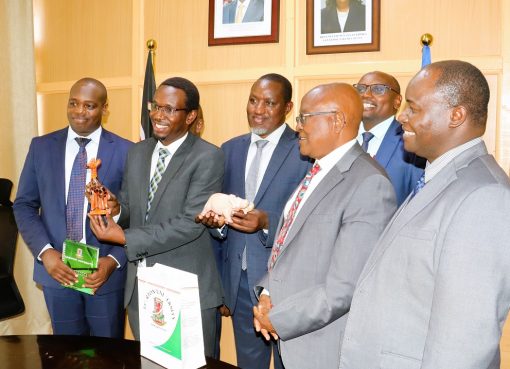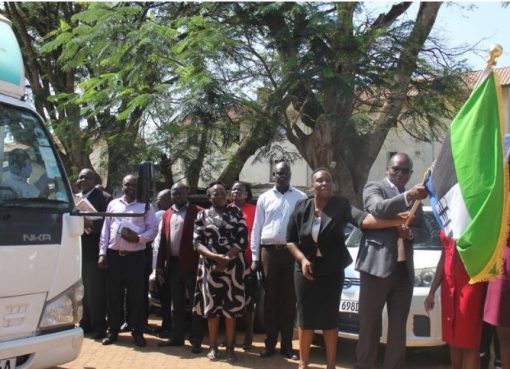The Principal Secretary (PS), State Department for Gender and Affirmative Action, Anne Wang’ombe, has called on stakeholders to implement concrete strategies that will empower women in Procurement and Supplies Chain Management.
She emphasized that advancing gender inclusion in the sector, is not only a matter of equity, but also a critical step toward fostering economic growth and sustainable development.
Speaking at the 2nd Women in Procurement Conference held at Sarova Whitesands, the PS underscored the need for deliberate interventions, to create a more inclusive and equitable business environment for women.
She reiterated the government’s commitment to promoting gender-responsive procurement policies that enhance opportunities for women-led enterprises, ultimately contributing to a more prosperous and inclusive economy.
The 2nd Women in Procurement Conference aims at advancing the participation and professional growth of women in the procurement and supply chain sectors.
The Forum seeks to address existing gender disparities within the industry by equipping women with essential leadership skills, expanding their business opportunities, and fostering supportive networks that enhance their professional development.
Organized by the Kenya Institute of Supply Chain Management in collaboration with the State Department for Gender and Affirmative Action, the Conference is themed “Accelerating Action: Harnessing the Potential of Women in Procurement and Supply Chain Management,”.
“The Procurement and Supply Chain profession plays a pivotal role in upholding the principles of fairness, equity, transparency, and competitiveness as enshrined in Article 227 of the Kenyan Constitution,” Wang’ombe noted.
She urged the need to acknowledge the significant challenges that procurement and Supply Chains face. From global disruptions to domestic bottlenecks, which have heralded the need for resilience, innovation and strategic planning.
Wang’ombe noted that the theme directly aligns with the government’s call and development aspirations, as they actively seek to realize better aspirations for gender equality.
“By empowering women within the procurement and supply chain sectors, we not only unlock the immense potential, but also catalyze broader economic growth, change, and societal advancement.” Wan’gombe highlighted.
She emphasized that vices such as waste, misuse of resources, inflated or deflated pricing, and poor service delivery will undermine progress, leading to economic stagnation and lost opportunities.
“This is precisely where the accelerant action then becomes very crucial, this conference serves as a unique platform to address the specific challenges faced by women in procurement and supply chain management and to formulate actionable strategies for overcoming them.” She said.
Kilifi Deputy Governor, Flora Chilube, who was also in attendance, highlighted that women are already in local supply chains. From feeding programs to medical supplies to school input, noting that these are real procurement systems, and they should be recognized, supported, and formalized.

“Let us be clear, we are not talking about inviting women into the economy; they are already here, contributing, innovating, and driving progress. We need to actively remove the obstacles that stand in their way, not just offer well-meaning encouragement. Because resilience isn’t just about individual strength; it’s about systemic change. And that change starts with us.” Chilube said.
The Chief Executive Officer of the Kenya Institute of Supply Chain Management, Kenneth Matiba, re-affirmed the Organization’s commitment to fostering a more inclusive and supportive environment for women in procurement and supply chain management.
“We are confident that the resource persons and the carefully curated program for this Conference will provide valuable insights and opportunities for professional growth. We encourage all participants to engage freely, network, and exchange experiences to drive meaningful change in the sector,” he said.
Matiba further emphasized that the Institute will diligently document and follow up on all key discussions and resolutions to ensure tangible outcomes.
Acknowledging the persistent challenges faced by professionals in the field—including delays in service delivery, negative stereotypes, and inadequate institutional support—he assured stakeholders of the institute’s unwavering commitment to addressing these issues.
“We remain steadfast in our mission to create a fair and supportive environment for all. We shall not tire, and we shall not give up until we achieve the desired transformation. We urge you to join us in this journey and be ambassadors of change,” he concluded.
By Fatma Said




